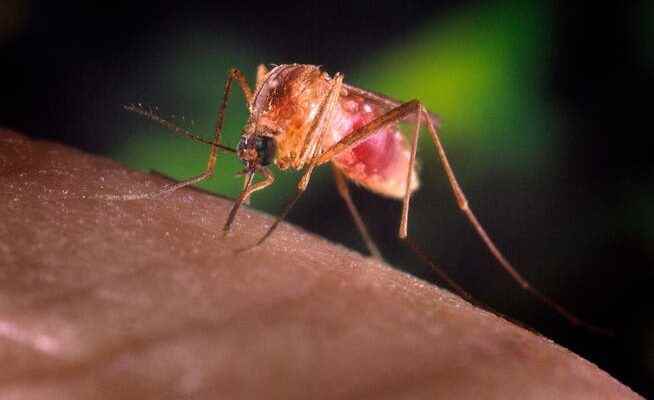The potentially dangerous pathogen has been detected in mosquitoes in Ticino. In Italy, the spread of the same virus has been making headlines since August.
Mosquito bites transmit West Nile Virus.
The long school summer holidays in Ticino ended with unpleasant news: the West Nile virus had been detected in local mosquitoes as part of regular mosquito monitoring in the past few weeks, the Ticino health department announced on Tuesday. Repeated tests would have confirmed its presence, both in the Sottoceneri and in the Sopraceneri. The agency also notes that there are currently no confirmed cases of transmission to humans.
The exotic West Nile virus belongs to the same family as the zika, dengue or tick-borne encephalitis viruses. Therefore it is potentially dangerous. The West Nile virus spread from Africa to all continents decades ago. This also applies to Europe, but Switzerland left it out until recently. Although some cases of West Nile fever have occurred in people in Switzerland since 2010, according to the authorities, the infections always took place abroad.
Birds are considered the main hosts
An infection with the West Nile virus goes unnoticed in 75 percent of cases. Only about 25 percent experience flu-like symptoms. In some cases, however, the pathogen affects the central nervous system. Life-threatening inflammation of the brain, meninges or spinal cord can then result in less than 1 percent of those infected. This usually affects elderly or immunocompromised people.
West Nile virus affects birds, which are considered the main hosts. The fact that it has also spread outside of the African continent is due to infected migratory birds. These carry the virus to other continents and, as in the case of Europe, are then bitten by the common native mosquito species Culex pipiens. This enables transmission to other native birds and occasionally to the definitive hosts, horses and humans.
Definitive host means: The West Nile virus cannot be passed on by humans or horses, neither to the mosquito nor to other humans or animals. The exotic tiger mosquito, on the other hand, which was introduced into Ticino around 2002 and aggressively bites people during the day, can also spread the pathogen. However, it is not considered the main carrier.
Because there is no vaccination, prevention is the priority
So the West Nile virus is now appearing in Switzerland, in Ticino – that is not without a certain logic. Because in neighboring northern Italy, a massive occurrence of the pathogen has been making headlines for weeks. According to the daily newspaper La Repubblica, around 300 people have been infected since June and 15 of them have died.
The cases of transmission occurred mainly in the area around the city of Padua, in Veneto and in Emiglia-Romagna. There were also a few in Lombardy. Since it is not possible to vaccinate against the virus, prevention is the priority: Long clothing, mosquito repellent and bed nets are recommended.
West Nile virus has been detected in Italy since 1998. According to “La Repubblica”, the first human diagnosis was made in 2008, and in 2018 the virus even led to 19 deaths. According to data from the EU health authority ECDC, around 400 infections and 15 deaths were recorded in Europe by the end of August this year. After Italy, Greece has the second largest number of cases with 83 infections.
